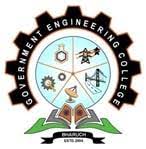There is no definitive answer to which branch is best in B.Tech at GEC, as it may depend on your interests, aptitude, career goals, and market demand. However, I can provide you some information about the different branches offered by GEC and their scope and prospects.
- Computer Science and Engineeri
Choosing the best branch in B.Tech at Government Engineering Colleges depends on various factors such as personal interest, career goals, and market demand. According to available information, Computer Science and Engineering, Electrical Engineering, Mechanical Engineering, and Civil Engineering are
Similar Questions for you
Yes, Government Engineering College, Bharuch offers scholarships. The scholarships are offered to meritorious and deserving studnets. Candidates can check the list of scholarship name below:
- National Scholarship Portal
- Digital Gujarat Postmetric Scholarship
- Mukhyamantri Yuva Svavlamban Yojna-MYSY
No, in order to get admission at Government Engineering College, Bharuch for BE course candidates must clear the entrance exam. Students must sit and appear for JEE Main and GUJCET. Students can check the table below to know in detail:
| Course Name | Eligibility | Selection Criteria |
|---|---|---|
| BE | Class 12 with a 45% aggregate | GUJCET, JEE Main |
Government Engineering College offers BE courses in six specialisations. The BE course is offered at the UG level. Students can check the list of BE specialisations below:
- Electrical Engineering
- Electronics & Communication Engineering
- Mechanical Engineering
- Chemical Engineering
- Civil Engineering
- Computer
Taking an Exam? Selecting a College?
Get authentic answers from experts, students and alumni that you won't find anywhere else.
On Shiksha, get access to
Learn more about...

Didn't find the answer you were looking for?
Search from Shiksha's 1 lakh+ Topics
Ask Current Students, Alumni & our Experts
Have a question related to your career & education?
See what others like you are asking & answering
